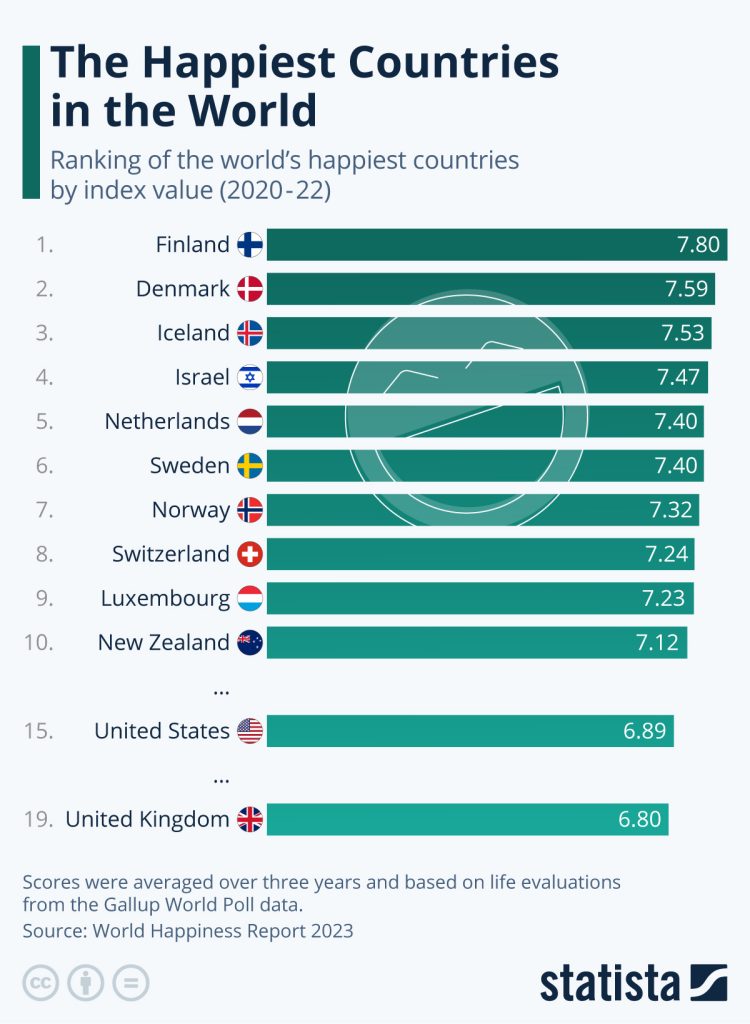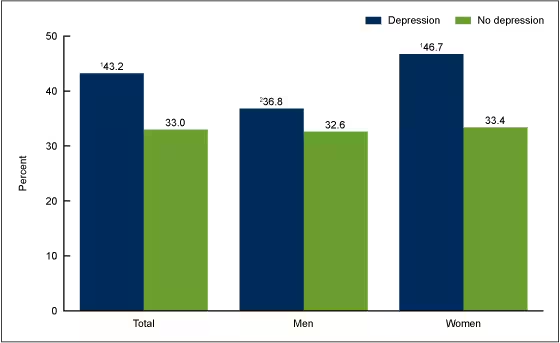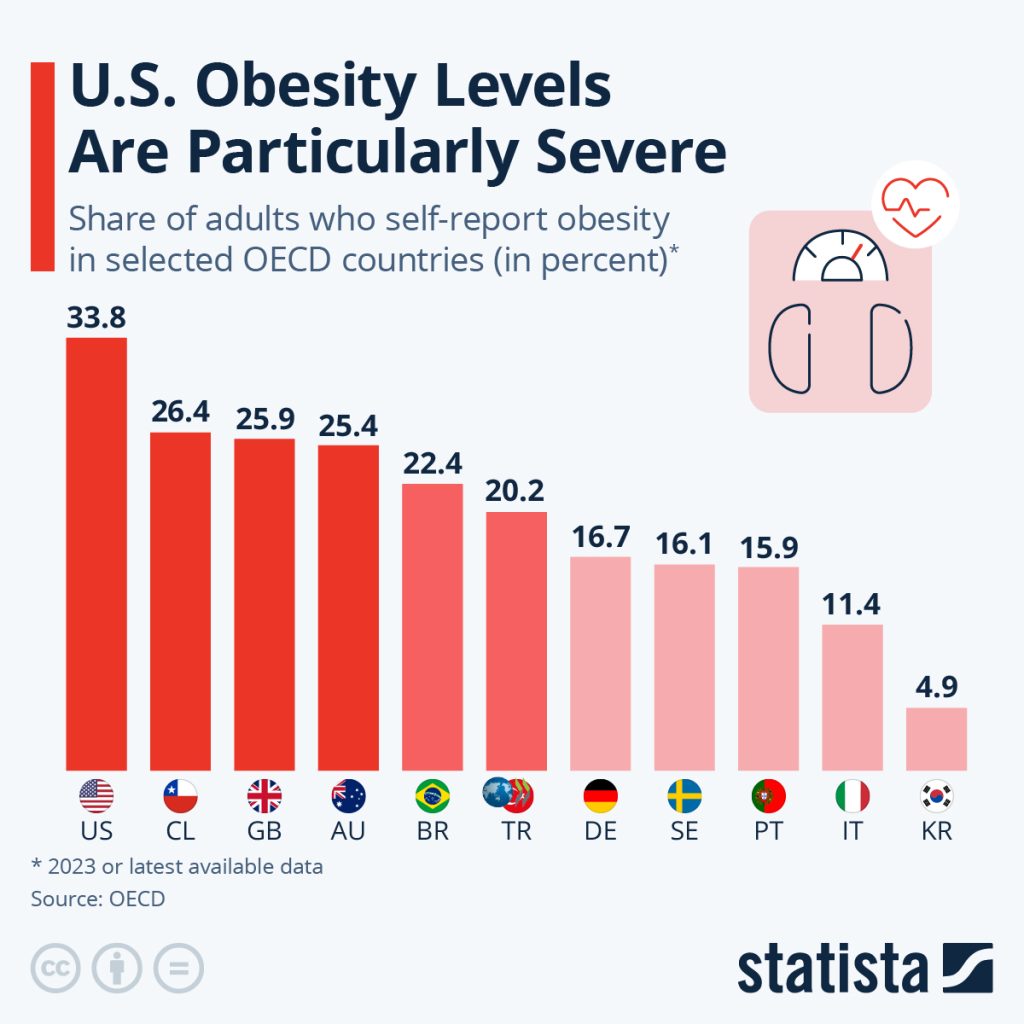America is often described as facing an obesity epidemic. Yet, focusing solely on weight overlooks a deeper issue. The root of the problem may not be what Americans eat or how little they exercise—it could be how they feel. Studies suggest that depression and unhappiness play a significant role in the high obesity rates seen in the United States, especially when compared to happier nations with lower obesity levels.

The World Happiness Report consistently ranks countries like Finland, Denmark, and Switzerland among the happiest in the world. These nations also tend to have lower obesity rates than the United States. For example, Finland, ranked the happiest country in 2023, has an obesity rate of about 23%. In contrast, the U.S., which ranks much lower in happiness, has an obesity rate exceeding 40%, according to the CDC. This striking difference raises the question: Could emotional well-being be influencing weight?

Numerous studies highlight a connection between depression and obesity. A meta-analysis published in JAMA Psychiatry found that individuals with depression are at a 58% higher risk of becoming obese. Similarly, those with obesity have a 55% higher risk of developing depression. This two-way relationship suggests that mental health struggles and weight issues are deeply intertwined.

One reason for this link is emotional eating. When people are stressed, anxious, or sad, they often turn to high-calorie, comfort foods as a coping mechanism. A study published in Appetite found that individuals experiencing negative emotions are more likely to consume foods high in sugar and fat, which can lead to weight gain over time.

The cultural pressures in America also contribute to this cycle. Many Americans work long hours, often without adequate vacation time or social support systems. In contrast, happier nations tend to prioritize work-life balance and social connections. For example, Denmark offers generous parental leave and shorter workweeks, reducing stress and allowing more time for self-care.

Access to mental health care also plays a role. While the U.S. has made strides in addressing mental health, barriers like cost, stigma, and lack of providers persist. In happier nations, mental health care is often integrated into primary health systems and is more affordable. This proactive approach helps individuals address emotional issues before they manifest as physical health problems.

Addressing America’s obesity crisis requires a shift in perspective. Rather than solely focusing on diet and exercise, we must also tackle the underlying emotional and psychological factors. Expanding access to affordable mental health care, promoting work-life balance, and creating supportive communities could help improve both emotional well-being and physical health. Ultimately, obesity may be the symptom, not the cause. By addressing depression and unhappiness, America can make strides not only in reducing obesity but also in creating a healthier, happier society.





